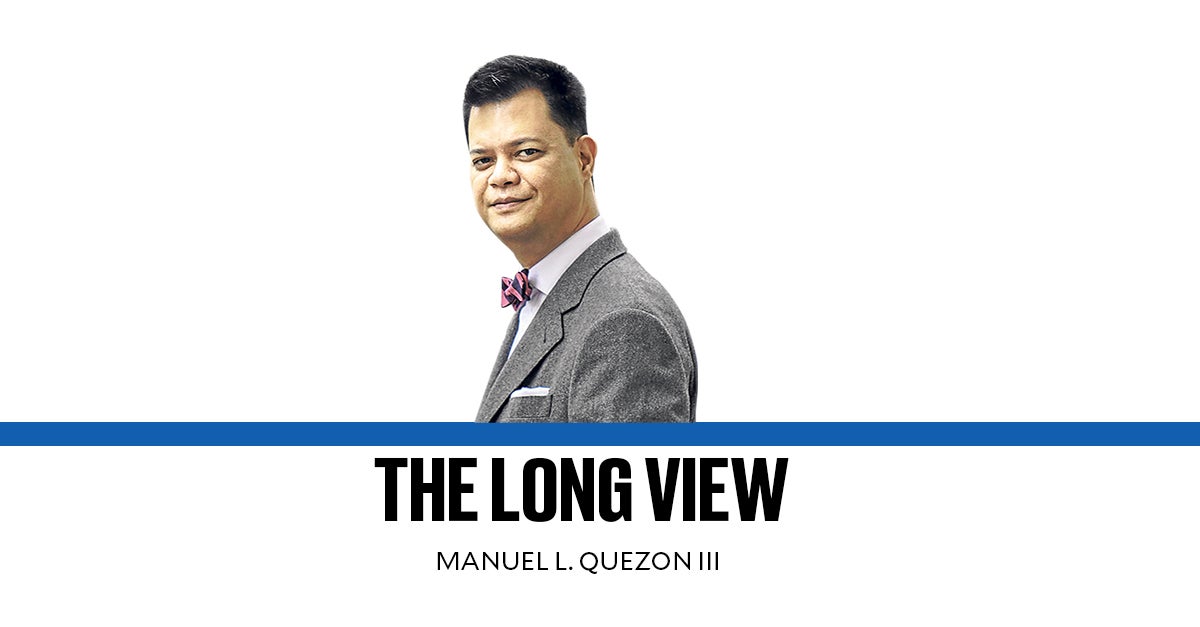Not friends, not partners, not even allies

The story goes something like this. When Roberto Romulo, who was a former IBM executive was secretary of Foreign Affairs, excited staffers presented an ambitious computerization plan during a departmental budget review. The famously peppery Romulo took one look at their presentation and asked, “But what about the typewriters? What do you do when there’s a brownout? This is the Philippines, you fools!”
True or not, I was reminded of that story as the world’s been both astounded and horrified by the dismantling of the United States government going on under the auspices of Elon Musk, who cleverly transformed an obscure office, the US Digital Service, into the United States Department of Government Efficiency (DOGE) Service, and subsequently sent agents to barge into government offices to seize control of their computer systems, putting payroll and human resources into the hands of an agency meant to do to bureaucrats what Musk has done to the private sector: slash and burn at warp speed. Beds were moved into the DOGE office so Musk’s team of young programmers can work 24/7, a frenetic, private sector pace bureaucracy, which clocks out at regular hours and doesn’t work weekends, can’t match.
It sure couldn’t happen here! But it’s happening in Washington.
The Guardian reports that the United States Agency for International Development (USAID) is the world’s biggest donor and provides 42 percent of the world’s humanitarian assistance (a staggering percentage). If you still suffer from the delusion that things on the internet last forever, the disappearance of data on the Philippines, such as Mindanao programs, should finally disabuse you of that notion. All that’s left of what USAID once upon a time used to do (to the tune of at least $100 million a year: Rappler reports us being “the second-largest recipient of USAID funding in the East Asia and Oceania region”), is the ghostly presence of cheerful press releases on the US Embassy website. (But for how long?) For once, our usually infinitely resourceful man in Washington, Babes Romualdez, seems at a loss. He’d been able to nimbly position the Philippines positively in terms of defense and the economy, but like everyone else, he seems blindsided by the sudden US decision to suspend foreign aid pending a review, which has now become a kind of deathwatch as people place bets on how much longer USAID has left to live.
Considering Americans are a giving culture, what accounts for this sudden revocation of the post-World War II donor policy of the US? In trying to describe Trump’s might makes right, go it alone unless there’s a transaction mindset, most analysts have described it as his being an isolationist. It’s not that, per se, writes Jennifer Mittelstadt who calls it Trump’s being a “sovereigntist,” instead. At the heart of such thinking, which dates back to opposition to Woodrow Wilson’s proposing American membership in the post-World War I League of Nations (itself the failed precursor of today’s United Nations), is a rejection of international organizations because they diminish national sovereignty (consider Brexit).
When Malaysia cut the umbilical cord of Moro rebels because continued conflict risked spreading to Sabah, USAID was instrumental in helping to build up civil society not just in Moro areas but in warlord-dominated Mindanao in general. Indeed, as civil society in general has withdrawn from active political involvement, it’s been the American umbilical cord that has kept NGOs viable. It helped ensure a steady investment in boring democracy- and economic-competency-building activities as our political class spent more and more of its time and energy in a kind of arms race with voters, who have become increasingly mercenary even as leaders have run out of ideas (but not appetite).
What now? Like the media, NGOs are going to discover that even if they die, no one, relatively speaking will miss them. There will be many celebrating their demise along with the evaporation of American soft power.
As former president Rodrigo Duterte used to say, with contempt, the American idea of official hospitality was coffee and a donut while—and here, his expression would become dreamy—the Chinese laid out lauriats for officials. Two decades ago, a Chinese Filipino civil society leader from Mindanao told me that when the US ambassador went to their part of Mindanao, it was like “a visit of a governor-general,” practically “an armed invasion,” while the Chinese ambassador, by way of (a very pleasing) contrast, would make a point of visiting Chinese business associations and give them gifts of motorcycles—without preaching.
In 1997, ironically during a journalist’s trip to Seoul, Washington, and Pearl Harbor cosponsored by the State and Defense departments, a senior Korean editor took me aside and advised me in a low voice, “Never trust the Americans.” It’s a fundamental lesson that non-Americans who like to believe they are “friends, partners, allies,” can once again be told by America’s enemies to take to heart.
—————-
Email: mlquezon3@gmail.com; Twitter: @mlq3





















